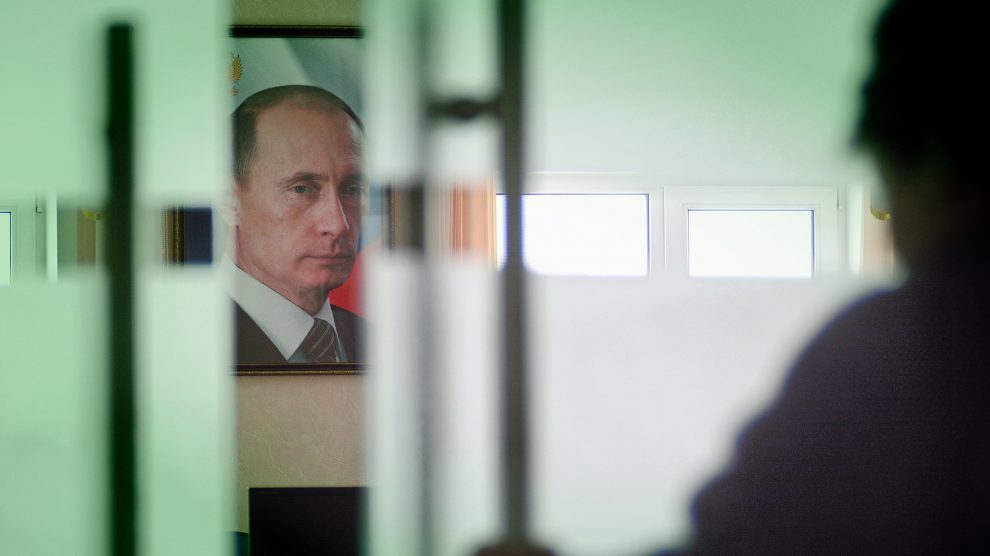Our weekly digest of articles about emerging Europe published elsewhere this week, all of which caught our eye and all of which are well worth your time. Listing them here, however, does not necessarily mean that we agree with every word, nor do they necessarily reflect Emerging Europe’s editorial policy.
Soft annexation: Inside the Russian takeover of Belarus
Kremlin spokesman Dmitry Peskov said this week that there are no discussions underway about unifying Russia and Belarus. Peskov’s remarks in an interview with Argumenty i Fakty on March 30 were just the latest attempt by a senior Russian official to insist that we should all move along because there really is nothing to see here.
‘Falling like flies’: Hungary’s Roma community pleads for Covid help
Coronavirus infections are ravaging Hungary’s 700,000-strong Roma community, according to personal accounts that suggest multiple deaths in single families are common in an unchecked outbreak fuelled by deep distrust of authorities.
How two decades of EU migration went into reverse
When prime minister Tony Blair opened Britain’s doors to workers from eight former communist states in Central and Eastern Europe in 2004, it was a big decision with huge ramifications. Over the next decade, Britain’s economy and society were transformed by hundreds of thousands of arrivals from Poland, Lithuania and elsewhere.
How Israeli defence firms began to dominate Central Europe
Slovakia is acquiring Israeli radar and the Czechia is putting Israel’s BIRD Aerosystems’ unique defense technology on its helicopters. The two deals announced in late March both represent increased interest in Israeli defence systems by key countries in Central and Eastern Europe.
Biden can help Armenia and Azerbaijan make peace
The first 100 days are not even over, and the Biden administration’s national security and foreign-policy team has already dealt with major fires around the world—from the Saudi-backed war in Yemen to a military coup and brutal crackdown in Myanmar to calibrating the relationship with a bristling China. But what can it do about Armenia and Azerbaijan?
Since the Oscar-nominated ‘Collective’, much and little has changed in Romania
The documentary revisits a deadly 2015 fire that brought down the Romanian government and exposed the catastrophic health care system. But not all the troubles are in the past.
Western Balkans’ plight is wake-up call for Europe
In societies devastated by the pandemic, the EU needs to leave its conventional tool-box behind and urgently speed up the Europeanisation of its neighbours in Southeast Europe.
The 70-year-old Polish dining cars that have become an institution
Created over 70 years ago, the Wars company (originally known as Przedsiębiorstwo Wagonów Sypialnych i Restauracyjnych or “Sleeper and Restaurant Cars Company”) is now a veritable institution on the European railway network, operating a host of sleeping cars and couchettes for domestic and international travel, as well as food and drink trolleys.
Operation Punishment: The Nazi bombing of Belgrade 80 years ago
Belgrade’s Old Palace was one of several buildings shattered by Nazi bombs on April 6, 1941. The air raid destroyed much of the center of the capital, killed thousands of people, and wiped out much of the published cultural heritage of Serbia when the National Library burned to the ground. The attack was ordered by Nazi leader Adolf Hitler after a coup overthrew Yugoslavia’s royal regent, Prince Peter, in late March 1941.
Latvia’s ancient poetry is getting its first major translation
Over the years, Swedes, Germans and Russians have all had a go at conquering Latvia and imposing their flavours of Christianity on it. Today Lutherans worship mainly in the country’s west, and Russian Orthodox in the east. But Latvia’s deepest rituals are still inspired by its home-grown brand of paganism. They include wild summer-solstice parties and a national song-and-dance festival every five years.
The artists creating new pockets of freedom in the new Tashkent
From music production to poetry, a new generation is reforging Tashkent’s cultural identity. Whether they are creating a jazz scene where there isn’t one, galvanising public interest in literature, or making VR tours for the city’s museums, these creatives are reinventing the Uzbek capital.
Unlike many news and information platforms, Emerging Europe is free to read, and always will be. There is no paywall here. We are independent, not affiliated with nor representing any political party or business organisation. We want the very best for emerging Europe, nothing more, nothing less. Your support will help us continue to spread the word about this amazing region.
You can contribute here. Thank you.








[…] Source link […]
[…] Source link : https://emerging-europe.com/news/inside-the-russian-takeover-of-belarus-elsewhere-in-e… Author : Publish date : 2021-04-04 06:30:32 Copyright for syndicated content belongs to the linked Source. Tags: BelarusemergingEuropeRussiantakeover Previous Post […]
[…] Source link […]
[…] Source link […]
[…] Inside the Russian takeover of Belarus: Elsewhere in emerging Europe – Emerging Europe (emergi… […]